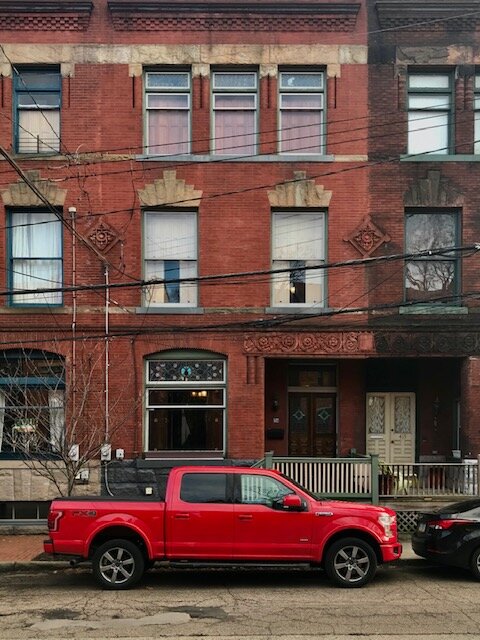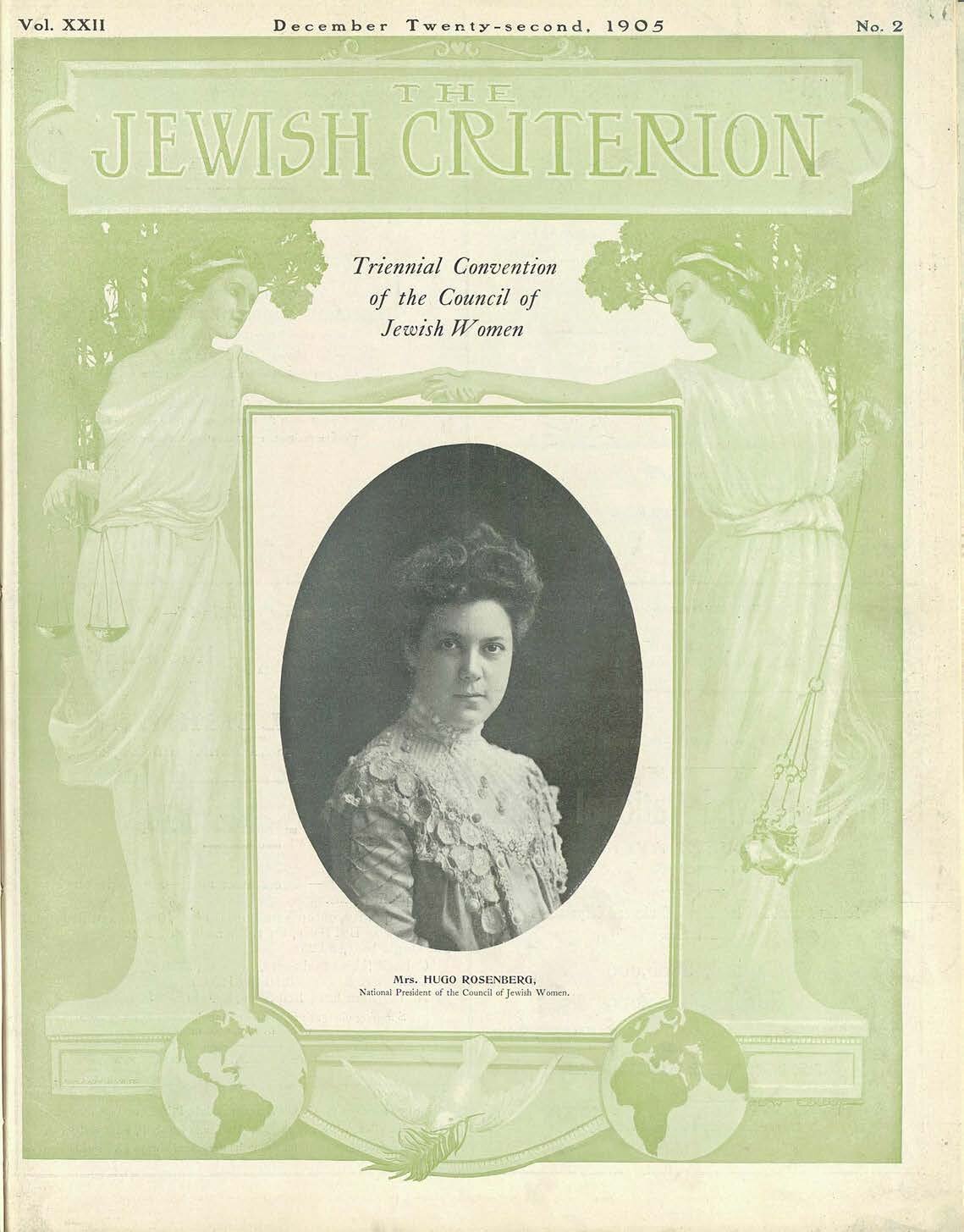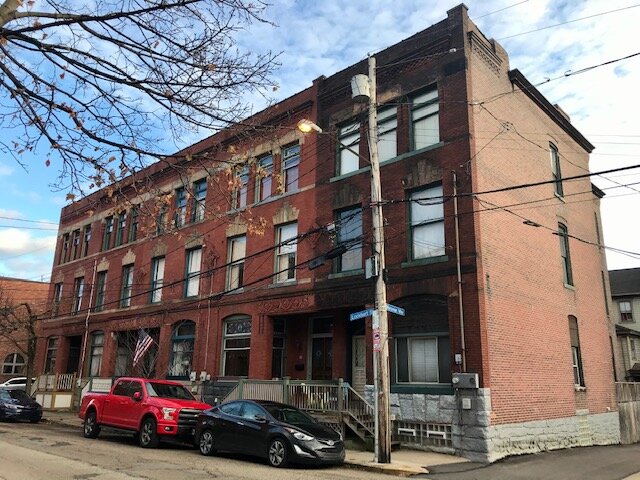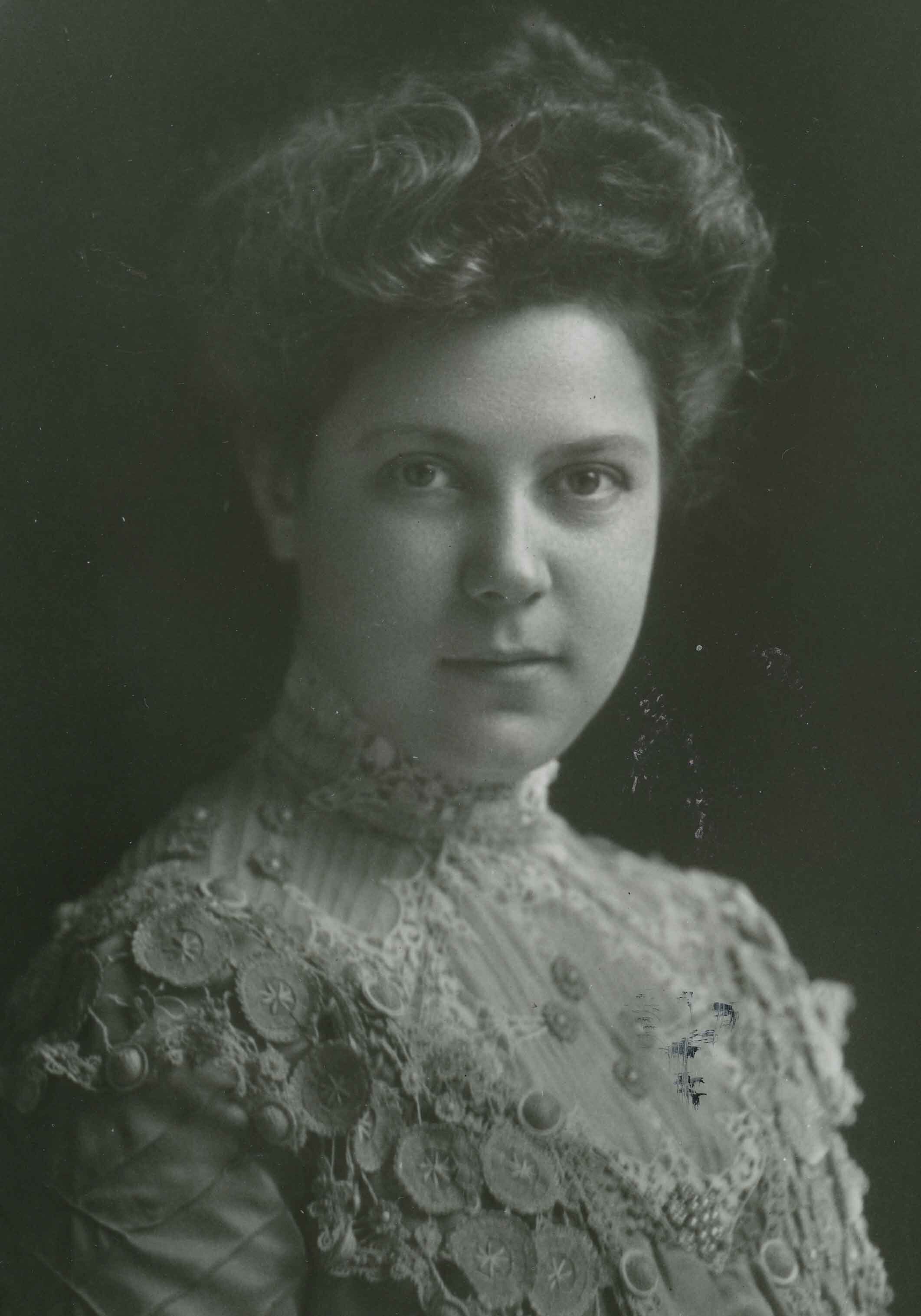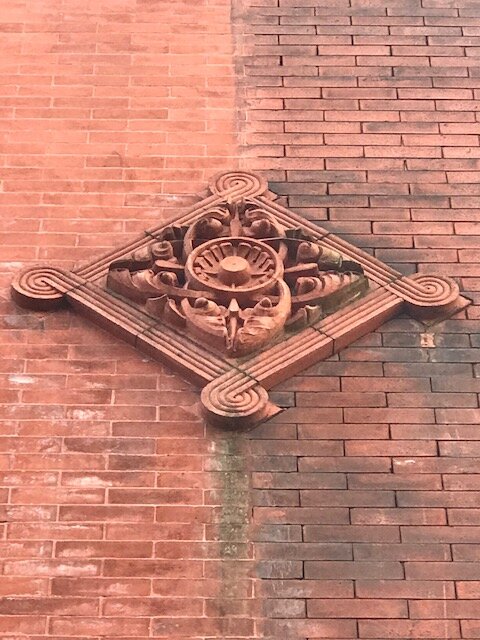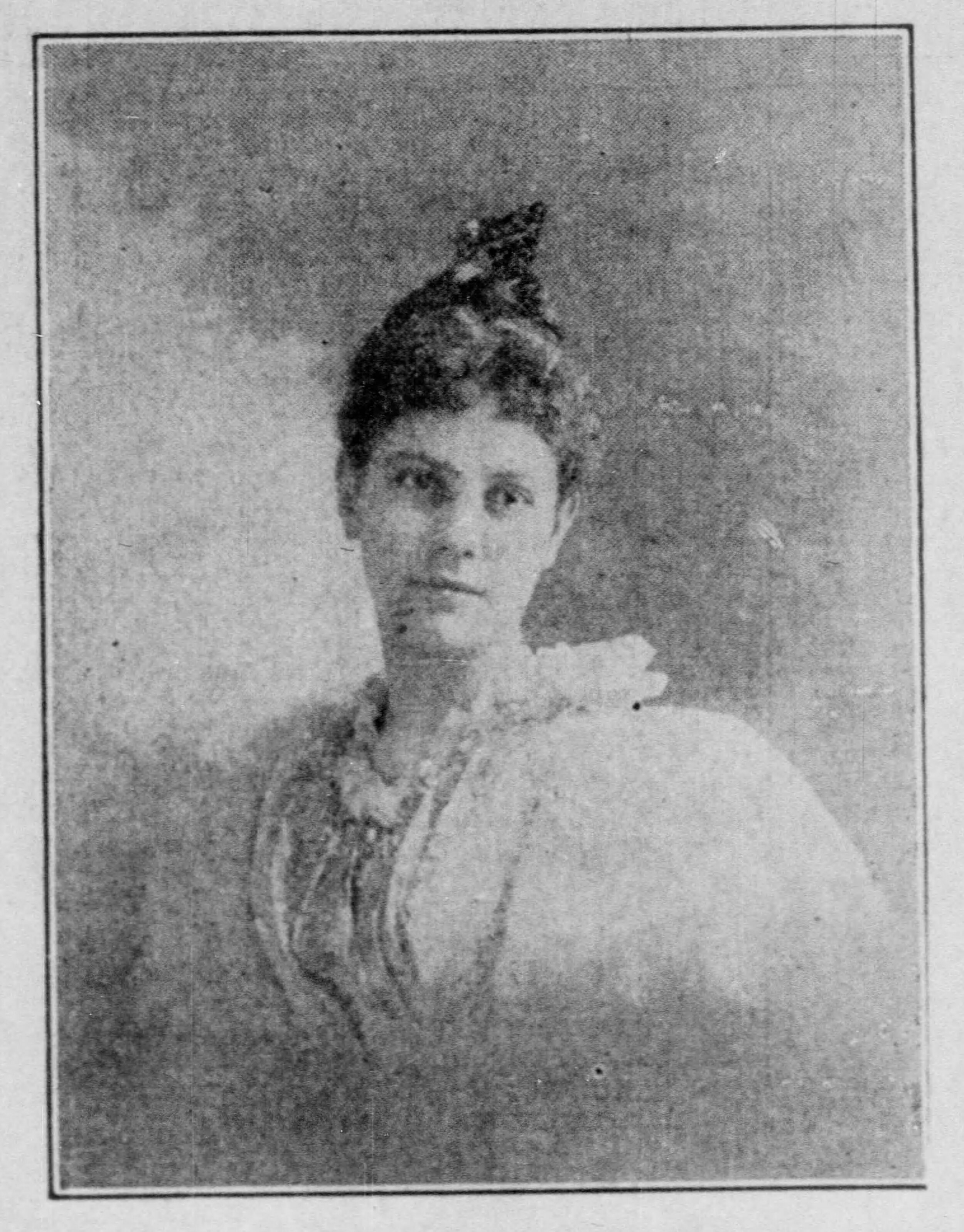Caroline Nelson had 415 through 419 Lockhart Street built between 1888 and 1889 while members of the Kaufman family of Cedar Avenue had 421 and 423 Lockhart Street built at the same time. Caroline Nelson was the wife of William Nelson, Pittsburgh’s first stained glass manufacturer. William Nelson made stained glass in Pittsburgh between 1852 and 1892 and worked in an era from which little construction documentation remains. His stained glass that remains in at least two houses in the row is his only known surviving work in Pittsburgh. The Nelson family lived in the Woods Run section of Allegheny City, and rented 417 Lockhart Street to tenants.
The earliest occupants of the house were Hugo Rosenberg, a merchant, and Pauline Hanauer Rosenberg, who founded the National Council of Jewish Women, its Pittsburgh section, and other Pennsylvania sections while living in the house. The Rosenbergs were socially prominent, and Pittsburgh social directories noted that Pauline Rosenberg received guests at 417 Lockhart Street on the first and second Wednesdays of each month. Rosenberg also hosted meetings of the Pittsburgh Women’s Club at the house and frequently had out-of-town guests at the house who were prominent state and national members of progressive causes particularly related to education, immigration, women’s rights, and the Jewish community.
Pauline Hanauer Rosenberg was born in Allegheny City, Pennsylvania in 1863 to prominent proponent of education Henrietta (Lehrberger) and Meyer Hanauer. She was educated at Pittsburgh's Central High School, belonged to Rodef Shalom Congregation (Western Pennsylvania's oldest Jewish congregation and one instrumental in shaping the national Reform Judaism movement), and married Hugo Rosenberg.
In Allegheny City & Pittsburgh Rosenberg served on the Boards of Allegheny General Hospital Ladies Auxiliary, Pennsylvania Federation of Women's Clubs, was president of Pittsburgh's Woman's Club, Civic Club, Needlework Guild, Free Kindergarten Association, Tenement House and Public Bath Committee, Personal Service Society among many other organizations. In 1896, Rosenberg played a leading role in founding the Columbian School & Settlement (later known as the Irene Kauffman Settlement House whose work is continued on through the Hill House Association and the Jewish Community Center of Greater Pittsburgh), which advanced the civic, intellectual, and social welfare of the surrounding community. She was also involved in the local women’s suffrage movement. Rosenberg attended Barnard College and Columbia University and upon her return to Pittsburgh played an instrumental role in advocating for Pennsylvania's 1903 Juvenile Court Act, created a local branch, and brought the first parole officer to Pittsburgh.
Although Rosenberg's involvement and leadership had a considerable impact on Pittsburgh, it was her efforts founding, shaping, and leading the National Council of Jewish Women (NCJW) that had a state, national, and international impact. Prior to the founding of the NCJW, no such organization existed on a national level for Jewish women.
In March 2020 the Pennsylvania Historical & Museum Commission awarded a State Historic Marker recognizing Rosenberg’s work and accomplishments. On April 24, 2020 the Pennsylvania State Historic Preservation Office determined the Hanauer-Rosenberg residence eligible to be listed on the National Register of Historic Places also because of its association with Pauline Hanauer Rosenberg.


